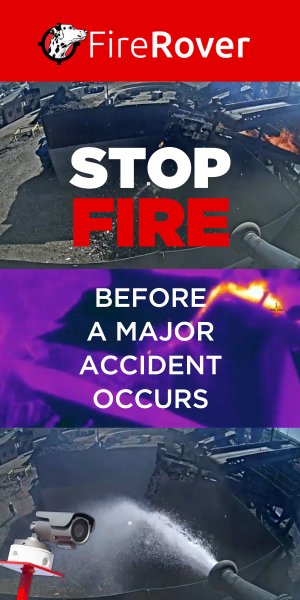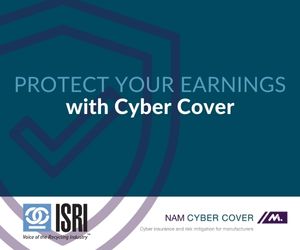As COVID-19 vaccines become more widely available, employers—particularly employers of essential workers, like those in the recycling industry—are wondering about their role regarding the vaccines’ use. While businesses can and should create a culture of safety and ease the vaccination process for employees, they should also be aware of potential labor issues that can arise when approaching employees about their health.
“Encouraging people to get the vaccine is strongly supported by EHS [the environment, health, and safety division],” says Ryan Nolte, ISRI’s director of safety outreach. Nolte points out that tests have shown the vaccine is effective and some early evidence suggests the current vaccines may protect not just the person being vaccinated but also others, by reducing infection and spread of the virus. (As the effects of the vaccine are still emerging, the Centers for Disease Control and Prevention (CDC) advises vaccinated people to continue wearing masks and socially distancing around others who may not be vaccinated until the pandemic is under control.) As a safety protocol, Nolte likens the COVID-19 vaccine to other forms of personal protective equipment (PPE), like safety glasses and steel-toed boots.
However, Nolte notes employers run into the same problem with the COVID-19 vaccine that they’ve seen with other types of vaccines—some people are vehemently opposed to receiving a vaccine due to their beliefs or pre-existing, high-risk health conditions. While employers can easily mandate the use of PPE, it’s more complicated to mandate an employee undergo a health procedure. In cases where religious beliefs or medical conditions create a conflict for the employee, strict vaccine mandates that don’t allow for exemptions cross the line from complicated to illegal.
Nolte says in the EHS world, ISRI and many recycling companies are entering the COVID-19 vaccine conversation by emphasizing education. “One thing we have been trying to do is compile literature on the effectiveness of the vaccines and how they work,” he says, pointing to a webinar ISRI held Feb. 3, which featured a presentation by Dr. Ben Locwin, a member of the Science & Public Health Task Force of greater Boston. “He walked through how these vaccines work and how safe they are—how effective they are,” Nolte says.
For Jerry Sjogren, safety director of E.L. Harvey & Sons (Westborough, Mass.), education and encouragement have been key to getting employees on board. He sent out a company-wide email to address rumors and misinformation spreading both online and at his facility and attached a fact sheet with common questions and CDC-sourced answers.
After consulting with the legal team and learning the company was within its right to require a mandate, Sjogren talked with the leadership of E.L. Harvey & Sons, who unanimously decided not to take that route. Instead, they agreed Sjogren should approach managers within each department and have them confer with their staffs, collecting the names of those willing to receive a company-arranged vaccination. By early February, Sjogren says, more than 200 people had signed up—well over half the company’s employees. “Those are pretty good numbers,” he says. (While many have signed up to receive the vaccine, the company was still waiting for an adequate supply of the vaccine due to local redistribution and supply chain issues as of mid-March, Sjogren says.)
E.L. Harvey & Sons’ on-site, workplace-arranged vaccination approach is one the CDC recommends for employers who are capable of offering it. Creating a workplace vaccination program allows employees convenient access, reduces the time they may need to take off work, and “improve[s] morale,” the CDC says. (To set up a program, employers should contact their local health department.)
Some recyclers are taking a hands-off approach to the vaccine discussion, focusing instead on other precautions. Lee Twitchell, safety, environment, and compliance director of metal recycling company Metro Group (Salt Lake City), says the company enforces a policy of social distancing, contact tracing and isolation for those exposed to the virus, and temperature reads at the door for teams with members who were quarantined. “Our stand is that it’s a personal choice,” Twitchell says. “If [employees] want to have the vaccine, awesome—we support that. If they don’t want the vaccine, we support that decision as well.”
If employees express a desire for it, Twitchell says, the company will look into arranging for its insurance provider to offer vaccinations on site, as Metro Group has done in the past with flu vaccines. However, as of February, the opportunity for employees to access vaccines in Utah was still very limited.
Employment litigation attorney Katie Lipp, owner of the Lipp Law Firm in Fairfax, Va., says that while employers can legally mandate the COVID-19 vaccine, they must demonstrate the vaccine is job-related. They should also familiarize themselves with the Americans with Disabilities Act (ADA) and Title VII of the Civil Rights Act, through which employees can request an exemption on health and religious grounds, respectively, from an employer vaccination mandate. The ADA also protects employees’ privacy with respect to their health information.
“The reality is most employers aren’t mandating the vaccine right now, nor would I recommend a mandate, because I think it would put the employer in a difficult logistical situation,” Lipp says. The difficulty arises when employees without clear religious or health exemptions refuse to take the vaccine. “Are you going to fire them? It puts the employer in a difficult spot,” she says.
Employers also put employees who require exemptions in the position of needing to provide documentation. For religious or health exemptions, the employee should be required to submit a request for religious or health accommodation, based on the employee’s situation. The health exemption based on the ADA should request documentation from the employee’s physician, and the religious exemption based on Title VII can be a self-certification from the employee.
To avoid the complications a mandate could cause, Lipp recommends employers who want to promote vaccination should openly support the vaccine and “make sure that support is converted into actions,” like allowing employees time off to get the vaccine or bringing an outside firm on site to provide vaccinations during company time (although Lipp acknowledges many logistical hurdles still exist for the latter option).
Employers should also be mindful that the COVID-19 vaccine has not been fully approved by the U.S. Food and Drug Administration. The vaccine does have emergency approval from the FDA, but employers that mandate the vaccine right now, before full FDA approval, are taking on unnecessary risk, according to Lipp.
“I think the biggest hurdle to getting folks vaccinated is just trust in the vaccine itself,” Lipp says. “If your employer says, ‘Hey, we support you getting the vaccine. We think it’s a good step to keeping everyone safe, including employees and customers.’ … It goes a long way.”
Image by @hakannural of Unsplash
Additional Resources












